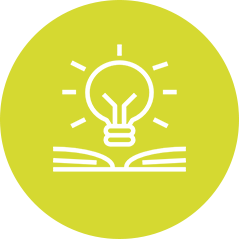We aim to integrate the essence of holistic education at our university and align it with the principles of the Sustainable Development Goals (SDGs). Our focus is on analyzing the multidimensional outcomes of student learning, and incorporating feedback from employers to ensure effective tracking, assessment and informed decision-making processes. The core design principles of our approach focus on “diverse learning outcomes for students,” “problem-solving-oriented learning,” “application of knowledge through practical implementation, innovation, and entrepreneurship,” to address the challenges faced in four major aspects: instructional innovation, social responsibility, industry-academia collaboration, and the enhancement of higher education’s accessibility. To achieve these goals, we are seeking breakthroughs and transformations in various areas, including professional fields, curriculum structures, teaching methods, learning models and educational systems. Our approach involves building a strong foundation of instructional knowledge and skills vertically, while expanding research and practical development horizontally. This expansion allows us to extend the learning experience beyond the confines of the campus, into society, industry and international settings. By shifting the focus from traditional “knowledge transmission” to the cultivation of “problem-solving and innovation capabilities,” we aim to develop a comprehensive and interconnected approach to nurturing diverse talents. As part of our commitment to this vision, we are implementing 25 sub-projects that aim to deepen and enhance higher education.
Focusing on the principle of “balancing humanities and technology,” we strive to integrate UN’s SDGs into our teaching and learning practices by enhancing the quality of instruction, strengthening teaching support systems and promoting innovative teaching methods. Our aim is to seamlessly infuse the SDGs into the fabric of our education and learning for our students. We have implemented versatile academic systems and made curriculum adjustments within the relevant faculties to cater to the needs of our students. At the same time, we have adopted innovative teaching methods to adapt to competency-based learning and integrate digital technologies. Our focus is on promoting the advancement of STEAM courses, cultivating key student abilities, offering diverse learning pathways, facilitating seamless transitions between majors, integrating emerging technologies into instruction and incorporating curriculum innovation through the CDIO approach. We are also prioritizing personal growth for students through the aesthetics of life. Additionally, we seek to address the demands of industries in light of the “Twelve Key Strategies” and enhance the students’ English communication skills by creating specialized development plans for each faculty. These plans are intended to nurture student’s key competencies to tackle future challenges while we construct digital transformation support systems to strengthen our campus resilience. In terms of internationalization, we have aligned with the global trends of intelligent technologies and digital development by promoting digital learning. We have also introduced the digital teaching model from Minerva University and are gradually transforming our courses to adapt to this new approach. We are committed to further strengthening our partnerships with international sister universities by actively breaking through existing curriculum frameworks and academic models. Our focus is on enhancing the quality of international education and promoting UNESCO’s initiatives for global talent development. Aiming to establish a culture of international collaboration and learning, we endeavor to enable our students to cultivate a global perspective and strengthen their international mobility skills. Additionally, we are continuously expanding our faculties with international expertise and attracting international students, creating a vibrant and international campus environment.
We encourage both faculty and students to engage with the community and show genuine concern for local issues. With a focus on “local connections,” “talent development” and “sustainable development,” we aim to strengthen the collaboration between the university and the local community, while also nurturing talented individuals. To align our operations to 17 of UN’s SDGs, we are actively promoting regional development by addressing various local issues such as industrial enhancement, community culture, urban development and rural development. Our goal is to contribute to the overall development of the region while advancing the SDGs. We shall establish connections between government and corporate resources to collaboratively drive the implementation of our social responsibility initiatives. By leveraging the university’s expertise and intellectual influence, we aim to cultivate professionals in sustainable development and become a “sustainable university that shoulders the responsibility of society.”
Guided by the principle of “integrating theory and practice,” we are focusing on developing the ability to “anticipate trends and solve problems.” This approach will enable us to foster a mindset that is aligned with the concept of sustainable development embodied in the SDGs. Driven by the core values of “strengthening advantages and enhancing key capabilities,” we have adopted a goal-oriented approach that focuses on “innovation, employment and practicality” to systematically promote talent development projects and initiatives that encompass employment programs, professional internships, practical projects and industry internships designed to cultivate skilled individuals. With regards to innovative research and development, we aim to solidify our competitive edge in research, and connect with international academic and scientific communities. We actively engage in interdisciplinary integration and international collaboration between academia and industry. By doing so, we strive to establish a lean global technology development hub, enhance our students’ international research exposure and broaden their industrial perspectives. By leveraging our university-level research centers and key areas of expertise, we aim to integrate the SDGs into international industry-academia collaborations and new entrepreneurial industries. In response to the government’s sustainable goal of achieving net-zero emissions by 2050, we will strengthen our research and development capabilities in sustainable circular economy initiatives. With the new campus in central and northern Taiwan as the base, we will collaborate with Taoyuan City Government’s Youth Startup Incubation Center to establish a campus technology park focusing on six core strategic industries, thus becoming a “smart university empowered by technology that actively promotes innovation and sustainability.”
In terms of students, the university’s fundamental principle is “student-centered learning and adaptive development.” By adhering to our educational philosophy of “unleashing individual potentials leads to success,” we shall commit to enhancing our support and guidance for students with special needs (i.e., economically or culturally disadvantaged students) and those with specific learning requirements. We have established an effective tracking mechanism through institutional research to explore the learning needs of students at different stages. Through cross-departmental collaboration, we have planned comprehensive and diverse counseling measures, and initiated full-scale student support to enhance learning outcomes, foster confidence, as well as cultivate positive character traits for our students. With regards to systems and mechanisms, we implemented a student-centered institutional research mechanism that aligns with the university’s mission and mid-term development plan. This includes regularly collecting feedback from internal and external stakeholders, and utilizing data management systems to construct a database of student learning processes and outcomes. Through data analysis, this database serves as a support system for internal and external evaluation and accreditation mechanisms, as well as for accountability reporting. It also provides a foundation for intelligent decision-making in university operations. Our aim is to establish our university as “an exemplar of evidence-based decision-making.”



